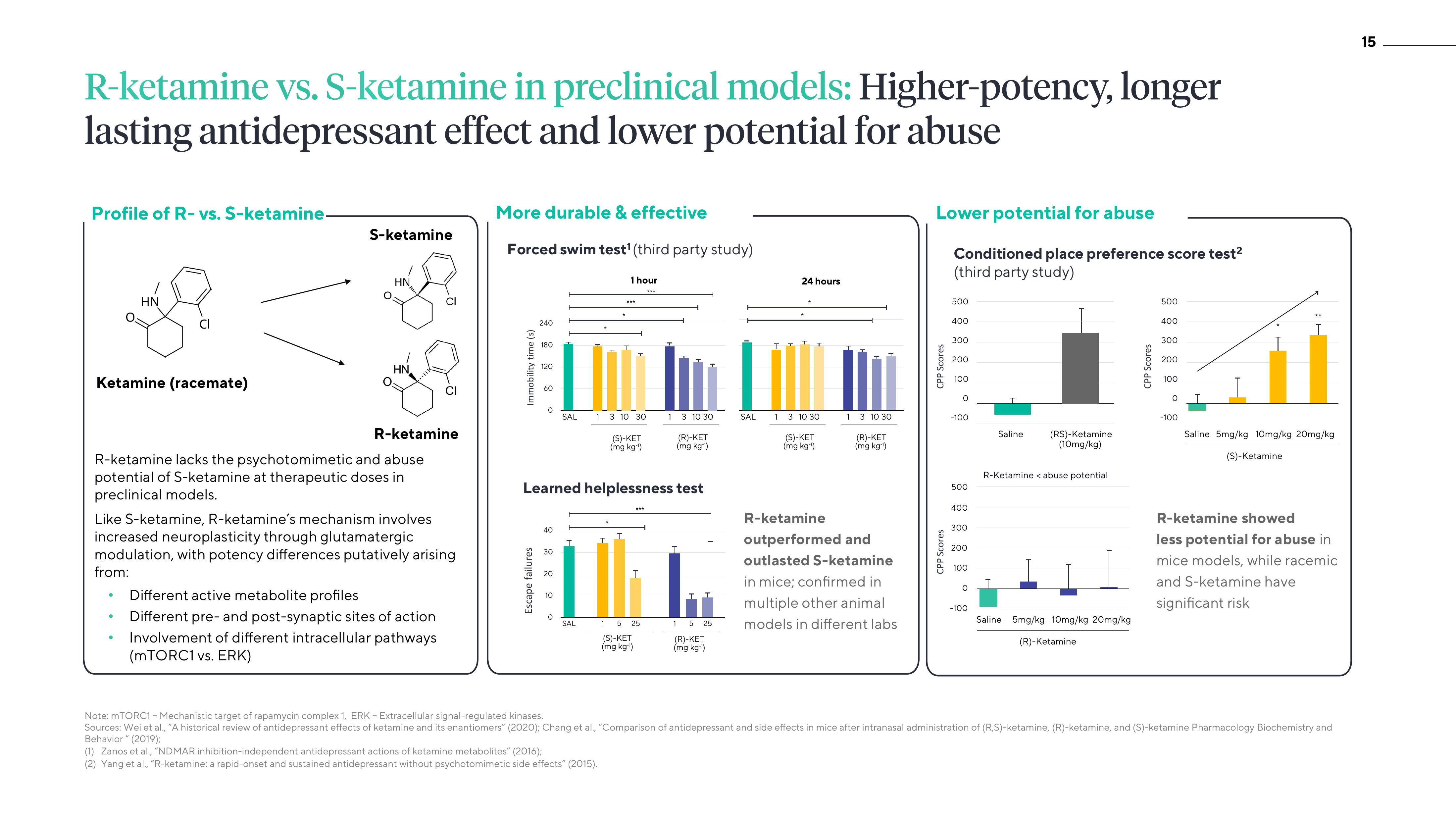ATAI Investor Presentation Deck
R-ketamine vs. S-ketamine in preclinical models: Higher-potency, longer
lasting antidepressant effect and lower potential for abuse
Profile of R- vs. S-ketamine.
HN
Ketamine (racemate)
S-ketamine
HN
HN
R-ketamine
R-ketamine lacks the psychotomimetic and abuse
potential of S-ketamine at therapeutic doses in
preclinical models.
Like S-ketamine, R-ketamine's mechanism involves
increased neuroplasticity through glutamatergic
modulation, with potency differences putatively arising
from:
Different active metabolite profiles
• Different pre- and post-synaptic sites of action
• Involvement of different intracellular pathways
(mTORC1 vs. ERK)
More durable & effective
Forced swim test¹ (third party study)
Immobility time (s)
240
Escape failures
180
120
60
40
30
SAL
10
Learned helplessness test
SAL
1 3 10 30
1 hour
(S)-KET
(mg kg-¹)
(1) Zanos et al., "NDMAR inhibition-independent antidepressant actions of ketamine metabolites" (2016);
(2) Yang et al., "R-ketamine: a rapid-onset and sustained antidepressant without psychotomimetic side effects" (2015).
T
15
(S)-KET
(mg kg-¹)
1 3 10 30
25
(R)-KET
(mg kg-¹)
1 5 25
(R)-KET
(mg kg-¹)
SAL
24 hours
1 3 10 30
(S)-KET
(mg kg-¹)
1 3 10 30
(R)-KET
(mg kg-¹)
R-ketamine
outperformed and
outlasted S-ketamine
in mice; confirmed in
multiple other animal
models in different labs
Lower potential for abuse
Conditioned place preference score test²
(third party study)
CPP Scores
CPP Scores
500
400
300
200
100
0
-100
500
400
300
200
100
0
-100
Saline.
(RS)-Ketamine
(10mg/kg)
R-Ketamine < abuse potential
Saline 5mg/kg 10mg/kg 20mg/kg
(R)-Ketamine
CPP Scores
500
400
300
200
100
0
-100
Saline 5mg/kg 10mg/kg 20mg/kg
(S)-Ketamine
R-ketamine showed
less potential for abuse in
mice models, while racemic
and S-ketamine have
significant risk
Note: mTORC1 = Mechanistic target of rapamycin complex 1, ERK= Extracellular signal-regulated kinases.
Sources: Wei et al., "A historical review of antidepressant effects of ketamine and its enantiomers" (2020); Chang et al., "Comparison of antidepressant and side effects in mice after intranasal administration of (R,S)-ketamine, (R)-ketamine, and (S)-ketamine Pharmacology Biochemistry and
Behavior" (2019);
15View entire presentation